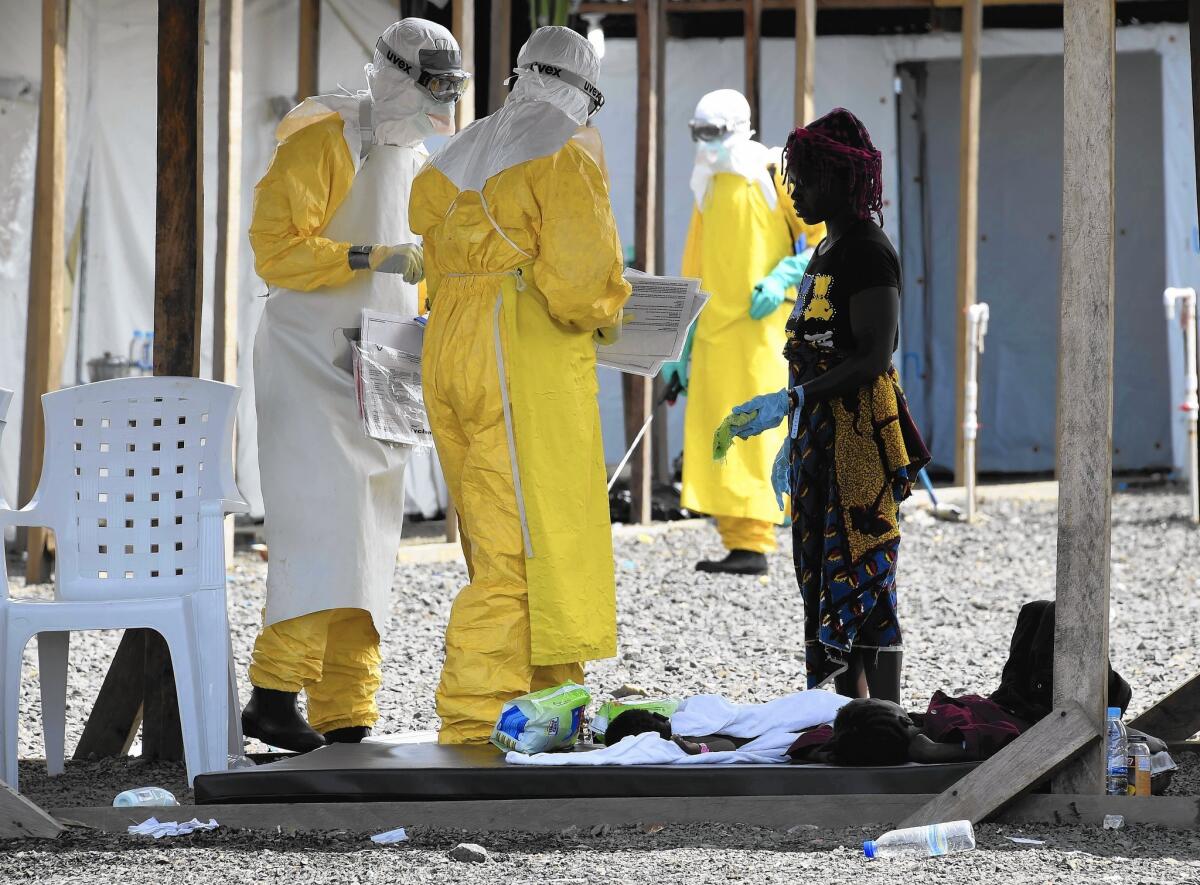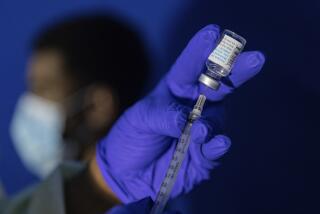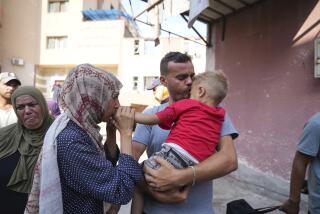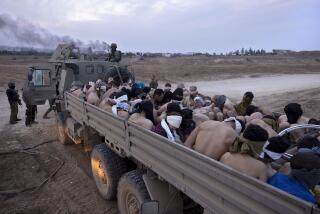Some Ebola health workers get cold reception upon return home

They’re the front-line soldiers: doctors and nurses like New York physician Craig Spencer who leave their families and friends, travel to help sick and dying people in a strange country and confront a dangerous virus.
Without them there is no fight against Ebola. And thousands more of them will be needed in coming months.
But returning home is increasingly complicated, according to Doctors Without Borders, the humanitarian group Spencer worked for. The organization, also known by its French initials MSF, is the biggest Ebola treatment provider in West Africa, with more than 3,000 staff members in the region, including 240 foreigners, operating six Ebola treatment units with 550 beds.
Like the medics of the Middle Ages who donned bird-like masks and used long sticks to prod plague patients, the front-line doctors are most at risk, and those who return home are increasingly stigmatized by their communities, and even told to stay away by fearful families.
“So far we have had a lot of interest from international workers who volunteer and go into these places because they really feel they need to go and help. On the other hand, it’s getting more and more difficult for our people coming back from the field,” Iza Ciglenecki, Doctors Without Borders epidemiologist in charge of operational research, said in phone interview from Geneva.
Health workers and support staff members going to work in West Africa say they often confront strong opposition from fearful family members. Working in Ebola treatment units, they face unspeakable horrors, trying to help people who often die in pools of their own blood. More than 62% of the patients, including children, will die terrible deaths. When the workers go home, some find that friends and family don’t want to see them.
“Their friends would not talk to them, their families would not accept them into the households,” Ciglenecki said.
People who bowled at the Gutter in Brooklyn or traveled on the same subway line as Spencer, who was diagnosed with Ebola this week after having worked with victims in Guinea, may be worried about getting the virus. But for everyone besides health workers and family members who clean up the bodily fluids of very sick people, Ebola is not easy to catch, according to the World Health Organization and other health groups.
Health officials say Ebola doesn’t survive long on surfaces; it’s easily killed by chlorine or bleach, and is transmitted from one person to another through bodily fluids. But for healthcare workers, one mistake in the delicate multi-step process of removing a personal protection suit can lead to infection.
Increased calls for controls on Doctors Without Borders workers returning home after treating Ebola patients, such as quarantine periods, could make it more difficult to recruit help.
Doctors Without Borders opposes mandatory or voluntary 21-day quarantine periods for its workers, partly because they undergo rigorous training and follow strict safety procedures to avoid infection, but also because the group monitors staff members who have returned from the field and transfers them to healthcare facilities if any symptoms appear. Ebola patients are not infectious until they are symptomatic, and they become more infectious as the disease progresses and the viral load in their bodies increases, according to experts.
Doctors Without Borders has called for the provision of Ebola vaccines to be accelerated, saying that when a vaccine is produced in adequate quantities, it should be given to doctors and healthcare workers first to reduce the risk of infection for doctors who work in Ebola treatment units.
In all, 443 healthcare workers had been infected as of Sunday, not including Spencer, and 244 had died, including 103 in Liberia, officials said.
International health officials say a massive influx of health workers will be needed to stop Ebola in the three worst-hit countries — Liberia, Sierra Leone and Guinea — and to prevent its spread elsewhere. An additional 3,262 treatment beds will be needed, requiring thousands of staff members, including cleaners, sprayers and hygienists. A Doctors Without Borders 100-bed unit is staffed by 300 to 500 people, Ciglenecki said.
“I think the international community is capable of setting up this number of beds. The problem will be staffing them. It’s not just doctors and nurses. It’s the cleaning staff who keep the centers safe,” she said. So far there are firm commitments from foreign medical teams to staff only 60% of the required total 4,388 beds and only 25% are in place.
Africa has produced the bulk of the healthcare workers in the Ebola response, including doctors from Uganda and the Democratic Republic of Congo, who have worked on outbreaks before.
Nigeria’s acting health minister, Khaliru Alhassan, said Friday that the West African country was ready to send 600 health workers trained in Ebola response to the hardest-hit countries, Reuters reported. In addition, the African Union chief, Nkosazana Dlamini-Zuma, said 600 additional health workers would be sent from East Africa.
More to Read
Sign up for Essential California
The most important California stories and recommendations in your inbox every morning.
You may occasionally receive promotional content from the Los Angeles Times.









